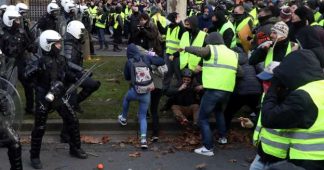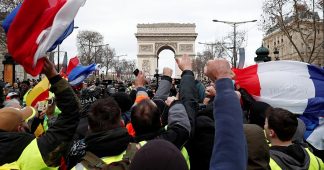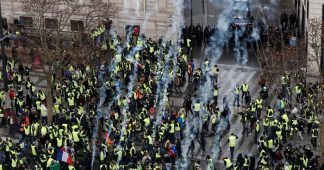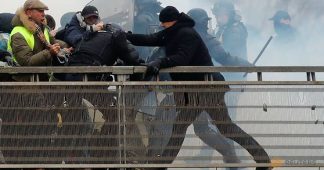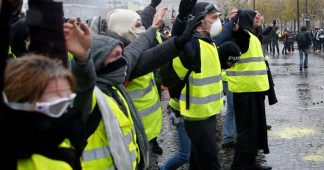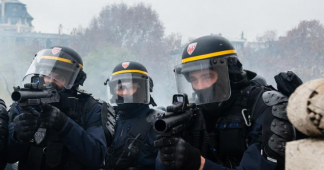7 February 2019
The French National Assembly voted overwhelmingly on Monday to approve President Emmanuel Macron’s “anti-riot” law, undermining the right to protest and further expanding police powers.
The law was first announced in January by Prime Minister Edouard Phillippe in response to the “yellow vest” protests against social inequality. It marks a significant step in the transformation of France into a police state. In line with a similar turn by capitalist governments in Europe and internationally—from Hungary, to Brazil, to the United States and elsewhere—the French ruling class is responding to the growth of social opposition in the working class over the unprecedented growth of social inequality by expanding its powers of repression.
The bill is to be approved by the Senate, France’s upper house, within a month. It stipulates that:
- Police prefects will be able to ban any individual from attending any public protest for a month. All that is required is that the government believe “serious reasons exist to think that their behavior constitutes a particularly grave threat to public order.”
- Anyone banned from protests will be added to a government watch-list. The interior and justice ministers will be authorized to “put in place automated monitoring of personal information, in order to ensure the surveillance, at a national level, of those banned from participating in public protests.”
- Police officers will be empowered, on the say-so of the state prosecutor, to search bags and cars of anyone at a protest or “its immediate surroundings.” This codifies into law existing practice: police now routinely search cars and bags of “yellow vest” protesters, searching for any object that they can claim might serve as an ‘”improvised weapon.”
- It will now be an offense to conceal, “voluntarily, totally or partially, one’s face in order not to be identified in such circumstances as would provide fears of a threat to public order.” Wearing a mask at a protest was already punishable with a 1,500 euro fine, but this upper limit will now be increased to a 15,000 euros and one year in prison.
It has been widely noted that police bans on “partially” concealing one’s face could apply to large sunglasses and scarves. It would also include the respiratory masks that some have taken to wearing at “yellow vest” protests in anticipation of police assaults with tear gas, and head masks to protect demonstrators from being shot in the face and head with rubber bullets and stun grenades.
The bill originally stated that it applied if the person wearing a facial covering did so in order to prepare a criminal act. But this was removed by amendment late last month in the Assembly, after deputies declared it would render the law “inapplicable.” Instead, the person arrested will now have to prove that they had a “legitimate motive” to hide their face. Laurence Vichnievsky of the Democratic Movement party, who moved the amendment, said it was needed to “reverse the onus of proof”—from the state to the accused.
Those banned from attending protests will be able to appeal to an administrative judge, but lawyers cited in the media have made clear that such appeals are practically impossible for an ordinary citizen to conduct. While the government is directed to provide 48 hours notice to anyone who has been banned from a protest, this does not apply if they are unable to reach the person.
excerpt from wsw.com
